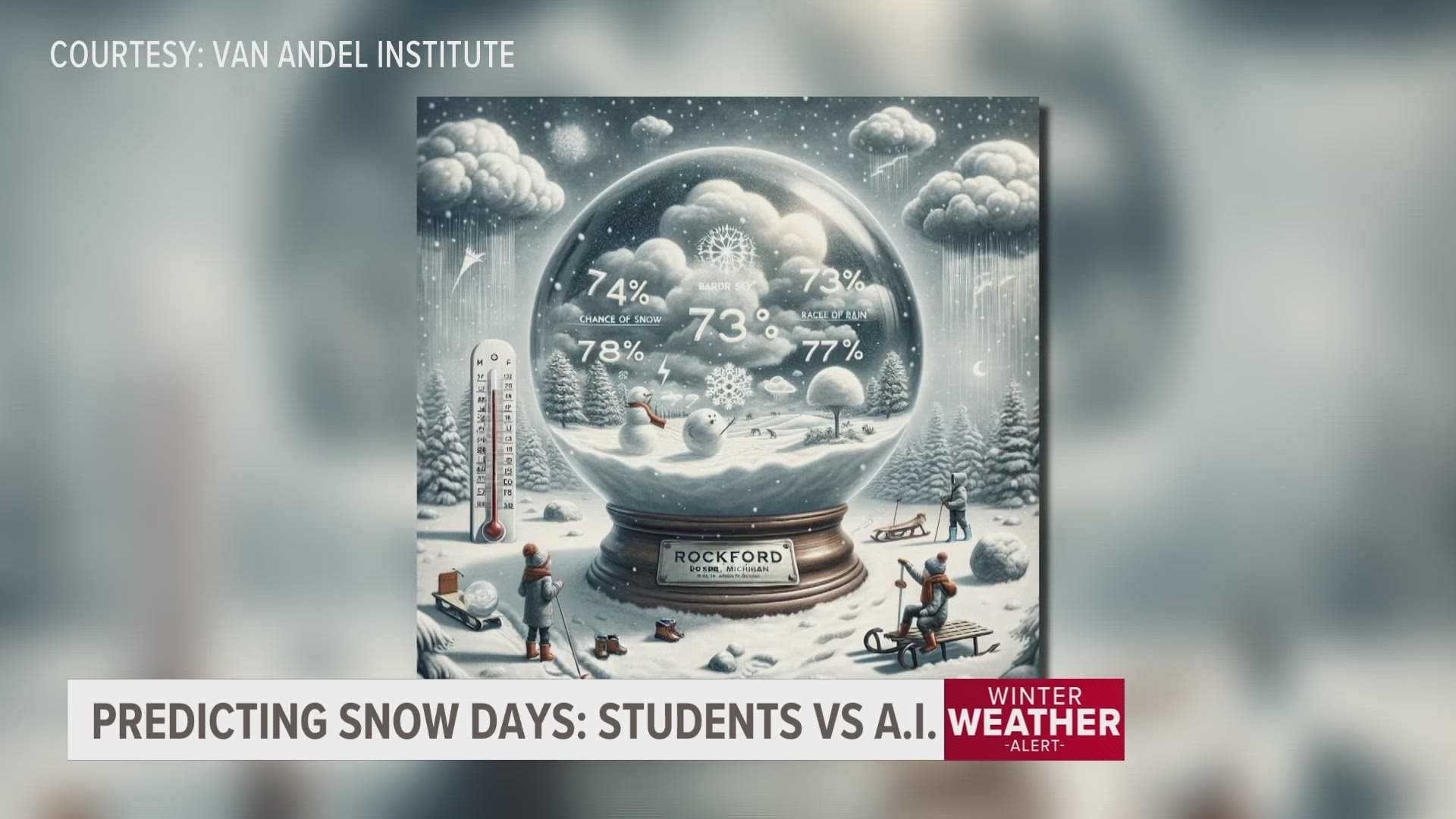ROME, Italy — Friar Paolo Benanti wears the plain brown robes of his medieval Franciscan order as he pursues one of the most pressing issues in contemporary times: how to govern artificial intelligence so that it enriches — and doesn’t exploit — people’s lives.
Benanti is the Vatican's go-to person on the technology and he has the ear of Pope Francis as well as some of Silicon Valley's top engineers and executives.
With a background in engineering, a doctorate in moral theology and a passion for what he calls the "ethics of technology,'' the 50-year-old Italian priest is on an urgent mission that he shares with Francis, who, in his annual peace message for 2024, pushed for an international treaty to ensure the ethical use of AI technology.
“What is the difference between a man who exists and a machine that functions?” said Benanti in an interview this week with The Associated Press during a break at the Pontifical Gregorian University, where he teaches courses such as moral theology and bioethics to students preparing for the priesthood. "This is perhaps the greatest question of these times, because we are witnessing a challenge that every day grows more profound with a machine that is humanizing.”
Benanti is a member of the United Nations’ Advisory Body on Artificial Intelligence as well as head of an Italian government commission tasked with providing recommendations on how to safeguard journalism from fake news and other disinformation. He is also a consultant to the Vatican’s Pontifical Academy for Life.
Benanti says he helps “better clarify the more technical terms for the Holy Father” during their encounters. His knowledge came in handy for a 2023 meeting at the Vatican between Francis and Microsoft President Brad Smith that focused on how AI could help or hurt humanity.
Francis and Smith had also discussed artificial intelligence “at the service of the common good” during a meeting a few years earlier, according to the Vatican. With a papacy heavily attentive to those who live on society’s margins, Francis has made clear his concern that AI technology could limit human rights by, say, negatively impacting a homebuyer's mortgage application, a migrant’s asylum bid or an evaluation of an offender’s likelihood to repeat a crime.
"It’s clear that if we choose some data that aren’t sufficiently inclusive, we will have some choices that aren’t inclusive,″ said Benanti, whose religious order was founded in the early 13th century by St. Francis of Assisi, who renounced earthly riches and promoted charitable works.
Microsoft first reached out to Benanti several years ago for his thoughts on technology, the friar said. In 2023, Smith did a podcast with Benanti in Rome, describing the friar as bringing “one of the most fascinating combinations in the world” in terms of his background in engineering, ethics and technology, to the AI debate.
Benanti, who was one year shy of obtaining his engineering degree at Rome's Sapienza University when he forsook the degree — and also his girlfriend — to join the Franciscans in his 20s, described how AI could be a “really powerful tool” in bringing down the cost of medicine and empowering doctors to help more people.
But he also described the ethical implications of a technology that could have the same capabilities as a human — or perhaps even more.
“It is a problem not of using (AI) but it is a problem of governance,'' the friar said. ”And here is where ethics come in — finding the right level of use inside a social context."
Benanti noted that much of the data that informs AI is fed by low-wage workers, many in developing countries entrenched in a history of colonialism and an exploited workforce.
“I don’t want this to be remembered as the season in which we extract from the global South cognitive resources," he said. If one examines “the best tools that we are producing in AI” in the West, one sees that AI is "trained with underpaid workers from English-speaking former colonies.″
How to govern AI is an issue that countries all over the globe are trying to resolve. The European Union became a trailblazer late last year when negotiators secured a deal that paves the way for legal oversight of AI technology.
In Italy, Premier Giorgia Meloni, who worries that AI could lead to job losses, will make the technology a focus of this year's G-7 summit being hosted by Italy. As part of those efforts, Meloni on Thursday met with visiting Microsoft founder Bill Gates in Rome, an encounter that was attended by Benanti.
For his part, the friar told AP that regulating artificial intelligence shouldn't mean limiting its development.
“It means keeping them compatible with that fragile system that is democracy, that today seems to be the best system,” Benanti said.

